Speaker
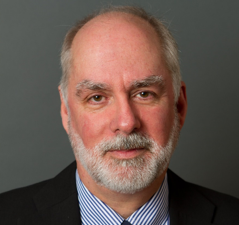 |
Prof. Richard J. Bathurst, GeoEngineering Centre at Queen’s-RMC, CanadaDr. Bathurst is Professor Emeritus of Civil Engineering at the Royal Military College of Canada where he has taught since 1980 and holds a cross-appointment at Queen's University. He is a past-President of the Engineering Institute of Canada, Canadian Geotechnical Society, International Geosynthetics Society (IGS) and the North American Geosynthetics Society. Dr. Bathurst has authored or co-authored more than 200 journal papers and 250 other contributions. Dr. Bathurst is Editor-in-Chief of the peer-reviewed technical journal Geosynthetics International and Associate Editor of the International Journal of Geomechanics, and Geotextiles and Geomembranes. He is Fellow of the Canadian Academy of Engineering, the Engineering Institute of Canada and the Canadian Society for Civil Engineering. Dr. Bathurst was elected Fellow of the Royal Society of Canada in 2017, which is the highest academic honour in Canada. The “Richard Bathurst Lecture” was recently announced by the IGS in recognition of his lifetime contributions to the development of geosynthetic soil reinforcement technologies and the mission of the IGS. The lecture will be delivered at the quadrennial International Geosynthetics Conference. |
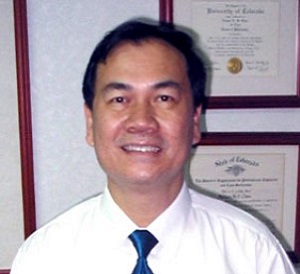 |
Prof. Nelson N. S. Chou, National Taiwan University, TaiwanProfessor Nelson N.S. Chou has more than 40 years of practical experience in civil engineering, including geotechnical, geosynthetic, highway, and sustainable/green engineering. He graduated from National Cheng-Kung University, Taiwan, with a BSCE degree and from the University of Colorado with a Ph.D. degree in Geotechnical/Geosynthetic Engineering. Professor Chou accumulated practical and teaching/research experiences in the USA, Taiwan, and China. He is the Past President of the Taiwan Geosynthetics Society and the chief editor of the design manual and specification of Geosynthetic Reinforced Soil (GRS) Structures in Taiwan. He is the former President of Sinotech Engineering Consultants, Inc., a leading consulting firm in Taiwan with over 1,500 engineers and branch offices in Fuzhou & Macao, China, and Jakarta, Indonesia. Besides consulting practices, he unselfishly shares his broad experiences with students at National Taiwan University and National Central University in Taiwan as adjunct professor and Southwest Jiaotong University and Northwest University in China as visiting professor. He published more than 100 technical papers, mainly in case histories of geotechnical engineering, GRS wall, and sustainable civil engineering. Besides, he owns six patents (related to the MSE wall) in Taiwan and USA. Dr. Chou received numerous awards, including the 2020 Fumio Tatsuoka Award from the Journal of Transportation Infrastructure Geotechnology in the USA and the Outstanding Geotechnical Engineer Award from the Taiwan Geotechnical Society. Recently, he was invited to give keynote lectures at GeoAsia 7 (2022 in Taipei) and at INA IGS (2021 in Jakarta). He is a Fellow of the American Society of Civil Engineers and the Chinese Institute of Civil & Hydraulic Engineering. Talk title: Sustainable/Green Geosynthetic Structures to Protect the Environmental |
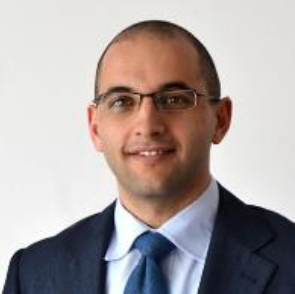 |
Prof. Sabatino Cuomo, University of Salerno, ItalyProf. Sabatino CUOMO is a professor and member of the Board of Directors of the Department of Civil Engineering at the University of Salerno, Italy. He specializes in geogrid material reinforcement, regional slope stability, slope erosion, etc. To date, Prof. Sabatino CUOMO has more than 160 publications, he has participated in several international conferences and served as a keynote, and he is a professional reviewer for several journals. He has been involved in many international collaborative projects and has conducted collaborative research with several countries. He is also passionate about international teaching and has been a visiting professor at several schools and has given lectures in several countries. He is a member of the IGS Technical Committee on Stabilization and a member of the Board of Directors of the Italian Section of the IGS, among others. |
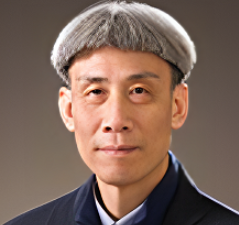 |
Prof. Han-Yong Jeon, Inha University, South KoreaProf. Han-Yong Jeon is an Emeritus Professor of geosynthetics/technical organic materials at Inha University, Incheon, South Korea. Since 1998, he has acted as the director of Geosynthetics Institute. He has also worked as a council member of the International Geosynthetics Society (2006-2012), the 6th president of Korean Geosynthetics Society (2011-2013), and the 32nd president of Korean Fiber Society (2014-2015). Prof. Jeon has published more than 964 proceedings at national and international conferences, and 168 papers in national and international journals. He also wrote in 25 Korean and English books. He was featured on the Marquis Who's Who - Science and Engineering (2003-2021) and among the Top 100 Scientists in the World 2005/2011 of the International Biographical Centre, UK. He also received the 33rd Academy Award (Korean Fiber Society) in 2006, the “Excellent Paper Award of 2012” (The Korean Federation of Science and Technology Societies), the Best Publication Award (Korea Association of Technical Textile Industry) in 2017, the 41st JeongHun Textile Industry Prize (Academy Award) in 2020, and is the winner of the 2021 KCA Outstanding Professional Awards (Korea Consumer Association). Talk title: Approach of Geosynthetic as Sustainability Concept for Environmental Adaptive and Eco-Environmental Performances Abstract: Most of the geosynthetics contribute to the long-term stability of the soil structure, so products with little change in long-term performance are mainly used. To this end, demand for biodegradable products emphasizing planting and environmental compatibility is increasing. Sustainable geosynthetics can be categorized as "usual geosynthetics" and "green geosynthetics" on the basis of required performance, and it can be said that it is meaning to expand the use of geosynthetics in the fusion level. In here, "usual geosynthetics" refers to functional long-term maintenance and environmental adaptive products, and "green geosynthetics" refers to eco-environmental products that are decomposable geosynthetic fibers whose functions are extinguished after a required period of time. |
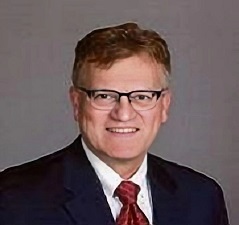 |
Dr. George R. Koerner, Director of the Geosynthetic Institute, United StatesDr. George R. Koerner is Director of the Geosynthetic Institute. He is in charge of laboratory accreditation, field certification and continuing education at the Institute. He also manages several research projects and has published over 200 technical papers in his 35 year association with polymers used in construction. Dr. Koerner’s Ph.D. is from Drexel University in Geotechnical Engineering. He is a registered professional engineer and a certified quality auditor. George has received many awards over the years. The most notable being IFAI’s Environmental Technologies Award of Excellence 1995, ASCE’s DVGI Geotechnical Engineer of the year in 2004, the title of ASTM Fellow in 2013, GMA’s first Koerner lecturer in 2017 and the title of ASCE Fellow in 2020. Talk title: ADVANCING CONTAINMENT SYSTEMS WITH IMPROVED GEOMEMBRANES Abstract: Keynote lecture will be on innovations and learning from experience related to barrier systems. Within this discussion there will be suggestions of updating property requirements of current geomembrane specifications. Most importantly there will be recommendations given for improvements with the durability requirements of several geomembrane specifications. The second discussion topic will be “leakage rates at waste containment facilities.” There have been many studies trying to quantify leakage rates through flaws in composite geomembrane-clay liner systems. However, we are at a point now where we have thousands of field sites with double composite liner systems with leak detection between them. It will be shown that a good action leakage rate for a landfill is below 20 gpad (200 lphd). However, this admirable threshold requires a Quality System Approach for containment facilities which is outlined below, 1. Good design by Professional Engineer 2. Quality materials meeting a generic specification 3. Accredited testing 4. Best Available Installation 5. Manufacturing and Construction Quality Assurance 6. Leak Integrity Survey prior to commissioning facility 7. Careful operations and maintenance |
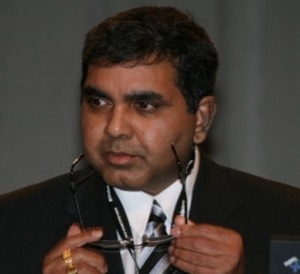 |
Prof. Sai Vanapalli, University of Ottawa, CanadaDr. Vanapalli is Professor and Chair of the Department of Civil Engineering at the University of Ottawa. He has been actively involved in research activities related to the mechanics of unsaturated soils. Dr. Vanapalli is a member of many societies, including the Canadian Geotechnical Society, American Society of Civil Engineers(ASCE), Professional Engineers of Ontario, and the International Society of Soil Mechanics and Geotechnical Engineering. Dr. Vanapalli received the Stermac Award for his outstanding contributions to the Canadian Geotechnical Society in 2010. Dr. Vanapalli has been an author or coauthor of over 150 research publications in peer-reviewed journals and refereed conferences, including one book chapter, four keynote papers, and two state-of-the-art reports for international unsaturated soil conferences. He has reviewed publications for several technical journals, including Geotechnique, Canadian Geotechnical Journal, Journal of Geotechnical and Geo-environmental Engineering, American Society of Testing Materials, Soil Science Society of America, Transportation Research Board, and many others. He has also served as guest editor for special issues on Unsaturated Soils for Geotechnical and Geological Engineering Journal and the Advances in Instrumentation and Monitoring in Geotechnical Engineering for the Journal of Advances in Civil Engineering. |
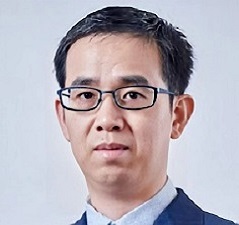 |
Assoc. Prof. Yaolin Yi, Nanyang Technological University, SingaporeDr. Yi is an Associate Professor in CEE, NTU, and the Deputy Co-Director of Surbana Jurong-NTU Corporate Laboratory. Before joining NTU, he was a Postdoctoral Fellow in the University of Alberta, Canada, from 2013 to 2016. Dr. Yi obtained his PhD degree from Southeast University, China, in 2013. He was an Academic Visitor in the University of Cambridge, UK, from 2009 to 2010.
Dr. Yi’s research areas include geotechnical and geoenvironmental engineering, sustainable construction materials, and waste treatment for civil engineering applications. Specifically, he focuses on (1) sustainable stabilization of problematic soils (e.g. soft clay, contaminated soil, and expansive soil) using industry by-products/wastes, (2) durability of stabilized soils in marine environment, and (3) carbonation of solid wastes for CO2 sequestration and heavy metal immobilization.
Dr. Yi is serving as Associate Editor for ASCE Journal of Materials in Civil Engineering and Editorial Member for ICE Ground Improvement. He is a member of ISSMGE technical committee ‘Sustainability in Geotechnical Engineering (TC307)’ and ASCE Geo-Institute Soil Improvement Committee. |
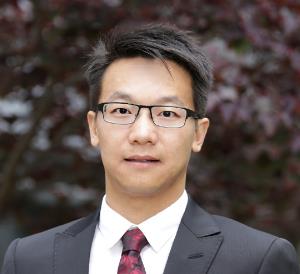 |
Prof. Yewei Zheng, Wuhan University, ChinaProf. Zheng received his undergraduate degree in civil engineering from Huazhong University of Science and Technology, his master's degree in geotechnical engineering from the University of Oklahoma, and his Ph.D. in geotechnical engineering from the University of California, San Diego, where he stayed for postdoctoral research. Prof. Zheng took up a tenure-track assistant professor position at Old Dominion University in 2018 and has been working as a professor and doctoral supervisor in the School of Civil and Architectural Engineering at Wuhan University since 2019. |
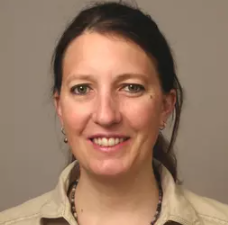 |
Prof. Barbara Schneider-Muntau, University of Innsbruck, AustriaProf. Barbara Schneider-Muntau currently heads the group of numerical and experimental soil mechanics at the University of Innsbruck (Professor since 2022, Habilitation in 2019, PhD in 2012). Her research and teaching focuses on numerical models of experiments and field observations at different scales with a strong focus on shear band formation, stability analyses and slope movements. She puts her research strongly in the context of sustainable approaches and solutions.
She has received the Kardinal-Innitzer-Förderungspreis, Preis der Landeshauptstadt Innsbruck für wissenschaftliche Forschung and other awards. The projects she is currently working on include funded basic research (e.g. on slope stability and sustainable nature-based solutions: https://www.operandum-project.eu/) and applied research (e.g. on the formation of braking bumps: https://projekte.ffg.at/projekt/3921139). |
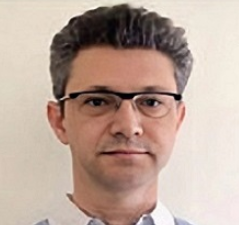 |
Prof. Enedir Ghisi, Federal University of Santa Catarina, BrazilProf. Enedir Ghisi obtained his PhD in Civil Engineering from the University of Leeds, in the UK, in 2002. He is currently a professor in the Department of Civil Engineering at the Federal University of Santa Catarina, located in Florianópolis, southern Brazil. So far, he has edited 10 books, published 14 book chapters, 158 conference articles and 155 journal articles. He has concluded the supervision of 14 PhD and 36 master's students. Currently, he supervises 9 PhD and 4 master's students. His research topics are thermal performance of buildings, energy efficiency in buildings, lighting, sustainability, building simulation, life cycle assessment, water consumption and rainwater harvesting in buildings. In studies carried out at Stanford University, in 2021 (DOI 10.17632/btchxktzyw.3) and also in 2020 (https://doi.org/10.1371/journal.pbio.3000918) Prof. Enedir Ghisi was recognised as one of the 100,000 most influential scientists in the world for the whole career and also for 2020 and 2019. |
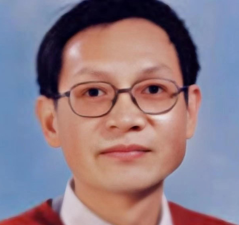 |
Prof. Junye WANG, Athabasca University, CanadaProf. Junye Wang holds a PhD from the East China University of Science and Technology, and has worked on environment, energy and sustainability for over 30 years. Dr. Wang joined ARBRI as our CAIP Research Chair in Computational Sustainability and Environmental Analytics in September, 2013. Prior to that Dr. Wang had served as Principal Research Scientist at Rothamsted Research in the UK, the longest running agricultural research station in the world. Dr. Wang is a leading expert in modelling and simulation of complex environmental and energy processes and systems, such as ecosystems, nutrient cycling and carbon sequestration, groundwater, pollutants, greenhouse gas emission and mitigation, fuel cells, microbial fuel cells, biogas, bioenergy and biomass. Dr. Wang has made efforts to integrate agroecosystem, land use change and Geographic Information System (GIS) to assess environmental impacts of expanding biogas, bioenergy crops, and land use change with emphasis on their interactions for over 8 years. |
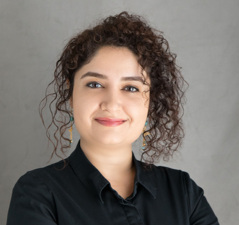 |
Dr. Naz Yarahmadi, Klohn Crippen BergerDr. Naz Yarahmadi received her Undergraduate Degree in Civil Engineering from Iran University of Science and Technology. Her Master's Degree in Geotechnical Engineering from Sharif University of Technology, Iran, and her Ph.D. in Geotechnical Engineering from Griffith University, Australia. Dr. Yarahmadi took the Geotechnical Engineer position at Klohn Crippen Berger in 2019.
Dr. Yarahmadi has served as a design engineer for several Tailings Storage Facilities across Australia. Her skills and professional interests include the application of geosynthetics in landfills and tailing dams, slope stability, seepage and deformation analysis of earth, rockfill and tailings dams, numerical modeling in dams deformation, liquefaction assessment, and qualitative Failure Modes and Effects Analysis (FMEA) in dams. |
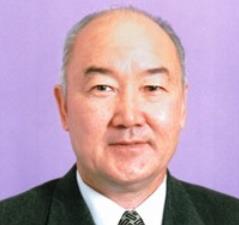 |
Prof. Boronbaev Erkin, Kyrgyz RepublicBoronbaev Erkin – a Professor, Full Doctor of technical science, the Educational Deserved Worker of Kyrgyz Republic. He was a graduate and PhD student of the Moscow State University of Construction.He is the author of the substantial monograph «Improving the Energy Efficiency of Buildings: Background, Theory, Practice». More than 160 scientific and educational works have been published, including 2 monographs, 4 patents, and 2 textbooks. His articles are included in Scopus, Web of Science, and other international databases. A number of scientific articles have been published in Germany, Slovenia, Israel, Estonia, Russia, Switzerland, and the USA.For many years he acted as an independent evaluator-expert of the European Commission research project proposals; as a participant in the preparation and implementation of more than ten international projects on energy, environment, and education fields of the World Bank, EBRD, ADB, Bank KfW, European Commission TACIS, TEMPUS, Erasmus Mundus and Erasmus+ projects as a Local manager, Deputy manager, National, International Project-coordinator, Team leader and Expert. |
.jpg)
.png)
.png)
.png)
.png)
.png)
.png)
.png)
If you have any questions or any requirements,
please contact us freely, we will response swiftly!